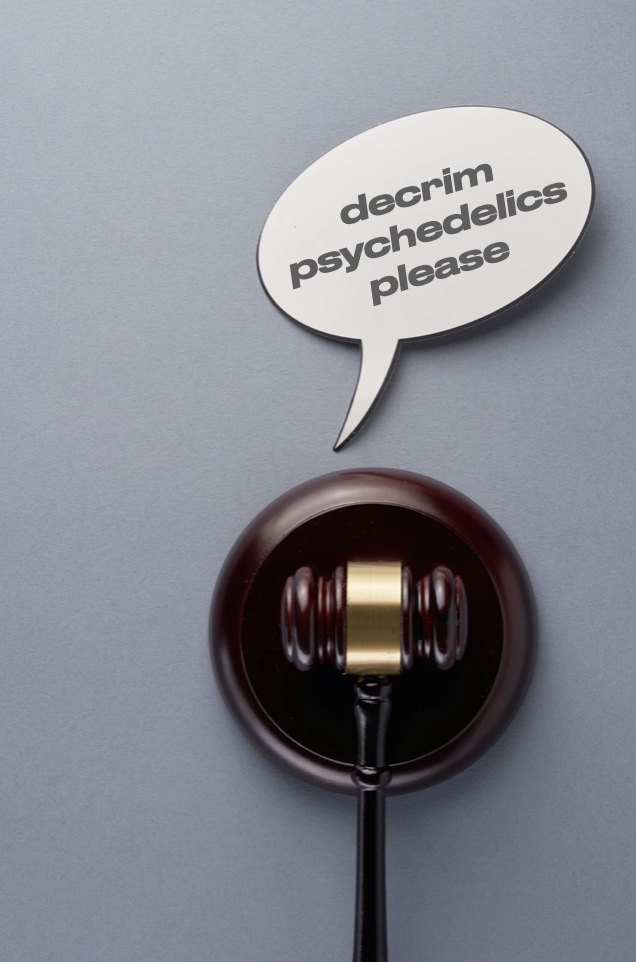The Decriminalization of Hallucinogens in the U.S.
Psychedelics (also known as hallucinogens) are a class of psychoactive substances that produce changes in a person’s perception of time, their emotional state and way of thinking. They can also cause a person to hallucinate—seeing or hearing things that do not exist, thus the term “hallucinogen.” Commonly known hallucinogens include LSD, Ecstasy (MDMA) and psilocybin mushrooms. Even though psychedelics are illegal federally and classified as a Schedule I drug, there has been a growing movement in the U.S. to decriminalize psychedelics and utilize them in the treatment of numerous mental health illnesses.
Decriminalization Efforts
In 1970, Congress passed the Controlled Substances Act (CSA) which divided controlled substances into five different categories (or schedules) based on the substance's actual or relative potential for abuse and its medicinal value. Psychedelics are classified Schedule 1, meaning the drug has a high potential for abuse and there is no currently accepted medical usage.
Despite this, a number of cities have begun decriminalizing these types of drugs. In May 2019, Denver Colorado became the first city to decriminalize psilocybin and psychedelic mushrooms under Ordinance 301. The Denver Psilocybin Initiative argued that the substance is physiologically safe, non-addictive and has the potential to treat stress, suicidality, and opioid use and dependence.
In June 2019, Oakland California passed legislation decriminalizing all entheogenic plants, including psylocibin mushrooms as well as other plants and fungi that contain psychoactive compounds, such as cacti, iboga and ayahuasca.
In September 2020, the City Council of Ann Arbor, Michigan decriminalized all entheogenic plants and fungi, including psilocybin, mushrooms, ayahuasca, mescaline, peyote and iboga, among others. The resolution cited that these substances can “Benefit psychological and physical wellness, support and enhance religious and spiritual practices, and can reestablish human’s inalienable and direct relationship to nature.”
ADVERTISEMENT
In November 2020, Oregon became the first state to not just decriminalize, but legalize psilocybin for therapeutic usage. Under the law that was passed, psilocybin can be administered to a mental health patient under the care of a licensed facilitator. Oregonians also passed Measure 110 that same year, which decriminalized possession of small amounts of drugs for personal use, including psychedelics and other illegal substances such as heroin and cocaine.
Utah
Unfortunately, Utah has yet to decriminalize any drugs, including psychedelics. However, there is some hope this may soon change. The Utah House of Representatives recently approved a bill (HB167) to create a “Mental Illness Psychotherapy Drug Task Force” to study and make recommendations on the therapeutic potential of psychedelic drugs for treating mental illness. The bill still needs to be passed by the Senate since the writing of this article.
Known Benefits
Studies have shown psychedelic substances such as psilocybin are extremely beneficial in treating mental health conditions. In 2006, a double-blind randomized controlled study compared the long-term psychological effects that psilocybin and methylphenidate (an FDA-approved drug to treat ADD and ADHD) had on healthy volunteers. The study found that there were significant psychological improvements among the volunteers who used psilocybin in comparison to those who used methylphenidate. In addition, more than half considered their psilocybin experience to be “among the most personally meaningful experiences of their lives.”
In 2016, a series of trials was conducted to assess the effect of psilocybin on cancer patients with depression. All three trials saw an immediate decrease in anxiety and depression post-psilocybin. Research has also found that psilocybin significantly improves obsessive compulsive disorder (OCD) symptoms and alcohol dependence.
Decriminalizing psychedelics would be beneficial for both individuals and society as a whole. The handful of cities that have already done so and studies done on the subject have proven this to be true, whether it be psychological, physiological or even spiritual. However, until these drugs are rescheduled and/or decriminalized entirely on a national level, the full potential of them may never be completely realized.
ADVERTISEMENT



